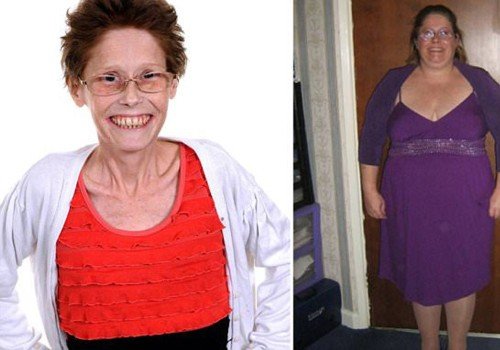Tips for preventing hair lossAvoid diets that restrict calories too much, add a variety of healthy proteins to your diet to help improve the production of amino acids needed to produce keratin, eat plenty of whole grains, fruits and vegetables, get enough sleep (about 7 to 8 hours per night) grains, fruits and vegetables in your diet. Whole grains contain iron which, according to the National Anemia Action Council, is an important factor in hair loss. Fruits and vegetables also contain vitamins A, C and E, as well as zinc, which contribute to hair growth. To prevent hair loss, avoid restrictive and shock diets, feed your body properly, and supplement before and after weight loss surgery.
Work with a qualified healthcare provider to identify the cause of hair loss and find a plan to facilitate hair growth. Prevention and treatment of telogen effluvium focus on proper nutrition and diet. Maintaining a balanced diet while avoiding fast diets and quick fixes is important for long-term weight loss success, as well as avoiding telogen effluvium. My hair has become much thinner and thinner since I lost weight, sometimes it came out in what looked like a handful when washing it.
Many studies have linked hair loss to rapid weight loss, calorie restriction, nutrient deficiencies, and psychological stress, all commonly in people on fast diets. We think you'll find that when you weigh the two against each other, it's best to follow your weight loss goals and deal with side effects as they arise, including hair loss. For example, sudden weight loss and restrictive diets have been linked to a condition known as acute telogen effluvium (TE), one of the most common causes of widespread scalp hair loss (1,. While your goal is to lose weight, you don't necessarily want to sacrifice anything else along the way, especially your hair.
The link between shock diet and hair loss has been documented in research since the 1970s (. Abrupt weight loss is more likely to frighten or cause shock to your body, which can increase the likelihood of hair loss. This is particularly the case if weight loss is due to a crash diet, weight loss surgery, or a restrictive diet. Your body is sensitive to nutrient deficiencies, stress, and hormonal changes, all of which can occur as a result of rapid weight loss, restrictive diets, or weight-loss surgery.
In addition to causing hair loss, iron deficiency anemia can lead to impaired brain function, infertility, heart disease, depression, and impaired immune system function (1.Hair loss during weight loss is usually due to nutrient deficiencies, as well as other effects, sudden and rapid weight loss). can have on your body. For example, nutrient deficiencies and extreme calorie restriction can lead to serious health consequences, such as iron deficiency anemia, muscle loss, and more. Vitamin C also helps the body absorb iron and produce collagen, which is one of the proteins that builds hair and helps prevent hair loss.





